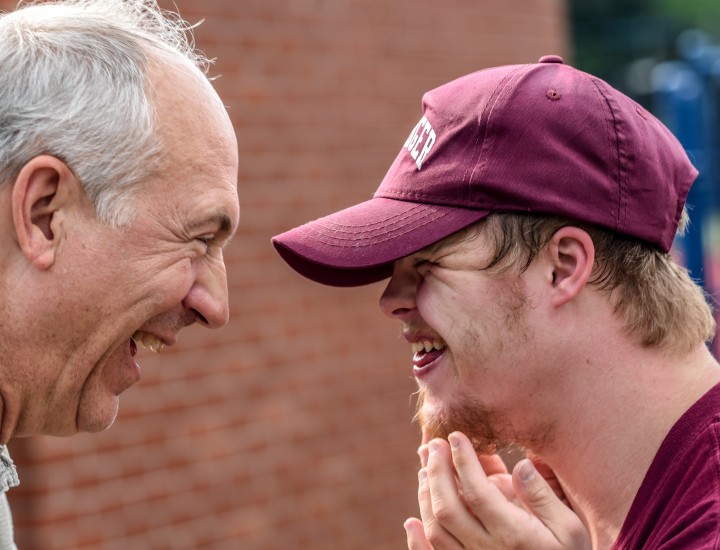HealthSpark Announces $631,000 in Grants to Support Montgomery County’s Social Safety Net

HealthSpark Foundation is announcing the award of $631,000 in grant funds to support 14 projects under the Safety Net Resiliency Initiative. The grants include 11 Innovation Lab grants, a 2-year grant to continue advocacy efforts through the Here for Us Advocacy Coalition, a research and planning grant to support anti-racist practice in homeless services, and planning to support the development of a social justice curriculum for safety net system providers working in the Montgomery County region.
“HealthSpark Foundation is incredibly grateful to our community partners for identifying projects with true potential to create a more just and sustainable safety net system,” shared President and CEO Russell Johnson. “The pandemic and our most recent report on the financial health of area nonprofits has shown that to foster a sustainable, financially resilient social sector, we must invest capital to enhance critical organizational and system capacity and think differently. These grants allow us to do just that- through innovative systems change projects, advocacy efforts to influence just public policies, and a foundational commitment to advancing greater racial and social justice.”
The Safety Net Resiliency Initiative is a partnership between the Foundation and the county's nonprofit, government, faith and community leaders to advance a more just and financially resilient safety net system in Montgomery County.
Advocacy Coalition and Public Education Campaign
The Foundation is pleased to continue its partnership with PA Health Access Network (PHAN) to support safety net system advocacy and public education through a two-year, $300,000 grant. Over the next two years, PHAN will continue to build out the infrastructure of the Here for Us Advocacy Coalition in Montgomery County that will support holistic, equitable, and financially sustainable policy and funding for the social safety net. Here for Us launched in October 2020.
The Here for Us public education campaign seeks to destigmatize use of the social safety net and build public support for social safety net programs like food pantries, rental and utility assistance, job training and childcare services.
Racial and Social Justice Grants
As previously announced, HealthSpark will also be supporting two projects that will encourage county-wide efforts to advance greater racial and social justice work among social services providers.
First, HealthSpark awarded $30,000 to Your Way Home Montgomery County to support its work in developing an explicitly anti-racist housing services triage tool. The goal of the project is to re-design Your Way Home's Coordinated Entry System to be more culturally responsive, antiracist and to identify new tools to eliminate known disparities in access and that inhibit housing insecure individuals from achieving their desired outcomes.
Second, the Foundation awarded $50,000 in planning funds to Bucks-Mont Collaborative in partnership with TriCounty Community Network and Interagency Council of Norristown to support the creation of a multi-year, comprehensive curriculum to build knowledge and practice on racial and social justice issues among their memberships. Chinwe Onyekere, HealthSpark's new Director of Equity & Inclusion, will serve as an advisor to this project, along with several other community leaders.
Innovation Lab Grant Program
The Foundation's Innovation Lab grant program provides working capital to community organizations that have identified an opportunity to create meaningful change within the social safety net. The framework for this round of project grants builds on the input, recommendations, and vision of more than 200 community partners described in the Foundation's Blueprint for a Better Safety Net.
The project awards include:
-
Access Services, $15,000 for a proof-of-concept project to implement a visiting medical “street medicine” program in Pottstown for homeless individuals.
-
Arcadia University, $26,000 for a pilot project to develop a model to establish a pipeline of trained public health interns and volunteers for local community organizations.
-
The Deaf-Hearing Communication Centre, $5,000 for the development of a research plan to assess accessibility and inclusion in the Montgomery County Safety Net.
-
Legal Aid of Southeastern Pennsylvania, $30,000 to develop a comprehensive and replicable plan for building a more inclusive model to serve the Latino and non-English speaking communities in Montgomery County, in partnership with ACLAMO.
-
Maternity Care Coalition, $30,000 to improve maternal and child health outcomes through the collaborative efforts of the MontCo Mamas project, which seeks to reduce racial disparities in infant mortality.
-
Mission Kids Child Advocacy Center, $30,000 to shift practice among policy makers to ensure youth with problematic sexualized behaviors are diverted from the justice system into specialized, evidence-based therapy.
-
Montgomery County Community College Foundation, $20,000 to explore models for improving access to psychiatric and medical services for mental health consumers in the greater Montgomery County region.
-
The Philip Jaisohn Memorial Foundation, $30,000 to pilot a mobile healthcare, social service, and technology training program to address the disparities experienced by Asian American seniors during the pandemic.
-
Senior Adult Activities Center of Montgomery County, $30,000 for a pilot program to explore how to better serve vulnerable seniors in Montgomery County by understanding and addressing technology needs.
-
Trellis for Tomorrow, $5,000 to support planning work of the Pottstown Area Food Collaborative, a cross-sector collaborative that is re-imagining how to allocate local assets and leverage resources to co-create a local food system that can better support the health and well-being of the Greater Pottstown area.
-
TriCounty Community Network on behalf of the MontCo Anti-Hunger Network, $30,000 to bring together the key local and regional players working to end hunger in Montgomery County to develop a strategy for "building back better" its emergency food system.


